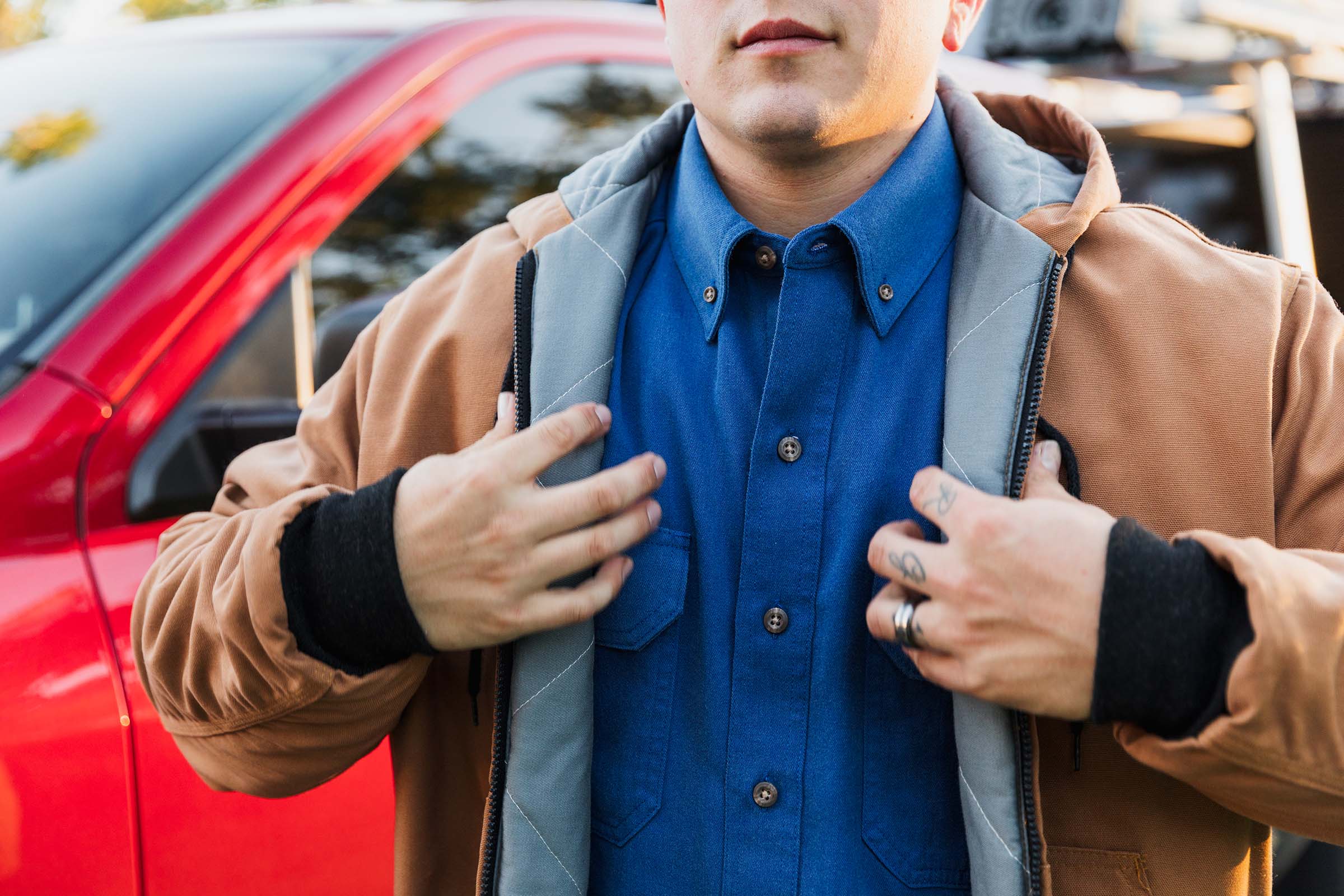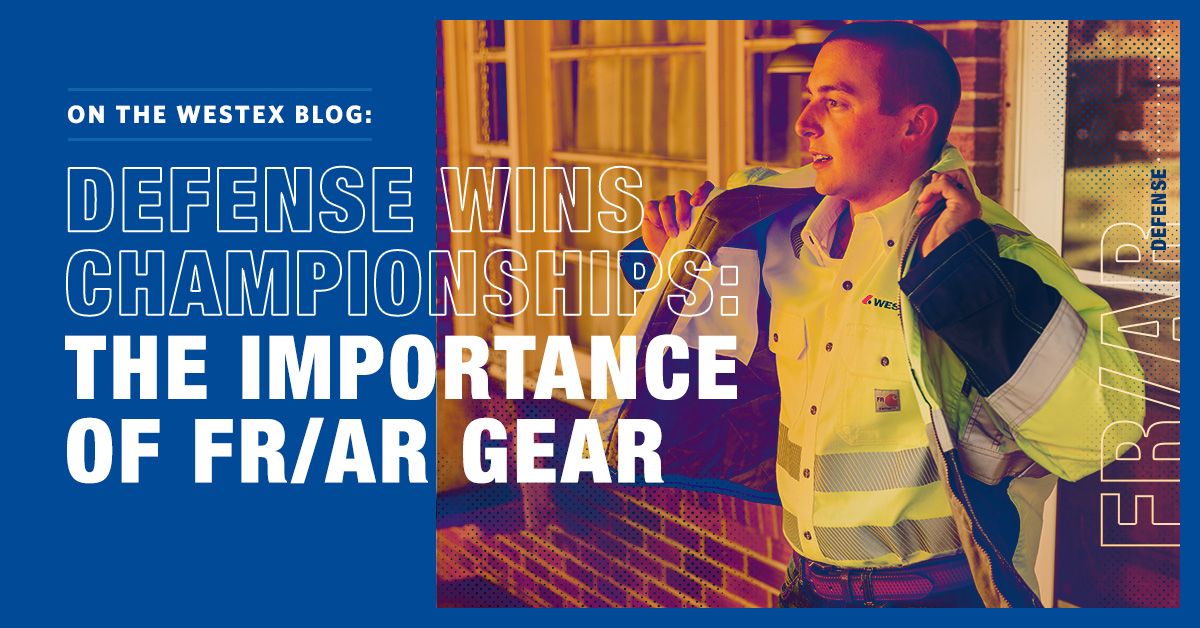
Setting the Standard: Why Quality Assurance Matters
GeneralFR Fabric Education 09 May 2023
When we say that our flame-resistant and arc-rated (FR/AR) garments are “proven,” take more than our word for it.
Trust the quality checks. Trust the certifications. Trust rounds and rounds of comprehensive testing procedures—all performed more often than required.
Ensuring flame resistance isn’t easy—especially for the entire life of an FR/AR garment. But we think it’s the right thing to do to protect the people who work in FR/AR clothing, trusting that it will keep them safe. This safety guarantee is the result of 150+ years of manufacturing expertise, plus diligence, discipline and a dedication to being extremely thorough.
So, if true performance varies depending on the individual fabric manufacturer, what does it really mean when FR/AR fabrics are certified?
Remember the applicable standard: FR fabrics need a NFPA® 2112 certification, and AR fabrics need to comply with NFPA 70E®. These fabrics have different testing requirements, and a third party completes NFPA 2112 certification.
Fabric manufacturers can self-declare compliance with the NFPA 70E standard if they comply with the ASTM F1506 standard when testing. Certification is an important first step, but it shouldn’t be the only validation you’re concerned with in your fabric selection process.
The People Behind the Process
We recently caught up with product line manager, Chris Romansky, and senior certifications & testing manager, James Cliver, to hear more about their quality assurance (QA) process.
If an FR/AR fabric meets the required standards, should users be concerned about their quality?
Romansky: Both NFPA 2112 and NFPA 70E provide minimum testing thresholds to achieve compliance. If a fabric reaches these minimums according to the testing protocol, then it is considered compliant. There is not clear guidance from the standards regarding ongoing performance levels or testing frequency once fabrics are in use. Those data points are largely left up to fabric manufacturers themselves—meaning there is a wide margin for exactly how effective some FR/AR fabrics are in the field, even with their certification.
Again, the standards are important. Many Westex team members sit on standard review committees and are extremely familiar with the documents that ensure folks doing hazardous work have the proper policies and procedures in place to keep them safe. We know these standards front to back, and we know what is needed to feel confident in our product… We feel that due diligence for us is meeting the standards and still testing more often than required. …and we still elect to test more often than required.
How does Westex define quality?
Romansky: We know thousands of people trust our fabrics. Our products can be the difference between a life-altering burn and another day unharmed. We aren’t looking to just check a box.
Instead, we’re ensuring our fabrics are continuously certified and rigorously tested—lot after lot, year after year. We take time to maintain post-certification tests for all our products because it’s the right thing to do.
Can you give an example?
Cliver: Let’s use NFPA 2112 certifications as an example. This standard requires a third-party certification meaning the fabric is measured by someone other than the manufacturer. For Westex fabrics, we complete the entire cycle of tests required by our industry—including NFPA 2112 requirements, quarterly audits and quality systems validations by our certifying organization, Underwriters Laboratories (UL). The work could stop there, but we believe that a more robust system of testing and verification is needed for products that impact a user’s safety.
Regardless of the certification’s requirements, Westex tests every lot of fabric until we meet a statistical threshold satisfactory to our business. Then, we shift to regular testing of post-100 wash samples. Our production lines have ISO 9001 quality management procedures in place, and our Magnolia production facility laboratory is certified to ISO/IEC 17025 and UL’s data acceptance program (DAP).
Why do you take testing and quality assurance to this level?
Cliver: One of Milliken’s core values is integrity, and we believe that extends to our products. I take my job as gatekeeper seriously. If I see a problem, I’ll pull the fabric back—even if it passes certification. I have a keen sense of who is using our fabric and how our fabric is a key to mitigating the hazards they face daily. That’s what makes my work even more important. It’s truly a huge responsibility.
When fabrics leave our facility, we want our users to feel confident that they perform. That’s what is so important to us at Westex, and that’s why we’re willing to go the extra mile.
This mentality isn’t one unique to James and Chris. At Westex, we know your ability to trust that your people are protected is critical. And because of the brave men and women who count on our products, we won’t stop innovating new solutions, testing their performance and proving our product.
Let us know if you’d like to learn more about our quality assurance processes.

